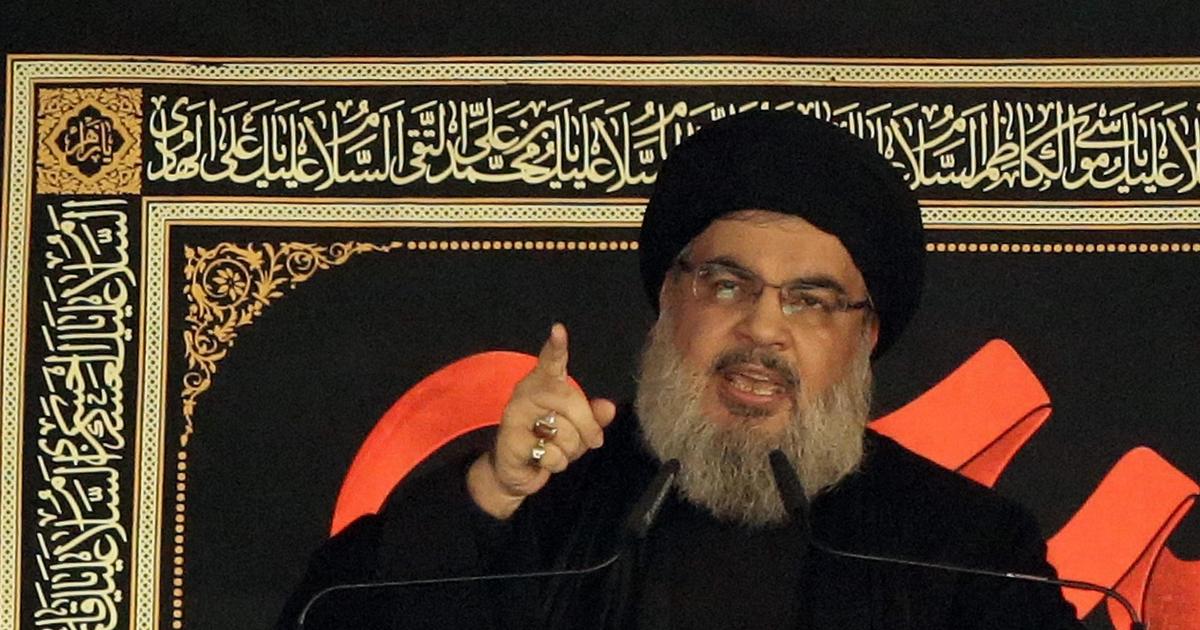Israel’s airstrike on Friday, targeting Hezbollah’s “central headquarters” in Beirut, Lebanon, claimed the life of Hassan Nasrallah, the organization’s longtime leader. The attack marked a significant blow to Hezbollah, the most powerful paramilitary force in the Middle East, leaving a void of leadership and potentially altering the course of the ongoing conflict between Israel and the group.
Nasrallah’s Death: A Pivotal Moment in the Conflict
Hassan Nasrallah, the charismatic and influential leader of Hezbollah, played a central role in the group’s trajectory for over three decades. He was known for his fiery rhetoric and unwavering commitment to opposing Israel, orchestrating numerous attacks and confrontations with the Jewish state. His death at the hands of Israel signifies a turning point in the Israeli-Hezbollah conflict, potentially marking a period of significant uncertainty and change.
Nasrallah’s Legacy: A Catalyst for Change
The assassination of Nasrallah, a figure synonymous with Hezbollah’s ideology and power, creates a complex power vacuum within the organization. His absence will likely necessitate a power struggle among potential successors, potentially leading to internal divisions and shifts in the group’s strategy and direction.
The Impact on Hezbollah’s Future
While Hezbollah has vowed to continue the fight against Israel, the loss of Nasrallah will inevitably have a profound impact on the group’s future. The manner in which Hezbollah adapts and responds to his assassination will be crucial in determining the organization’s trajectory. Whether it leads to greater internal cohesion and determination or fuels infighting and strategic adjustments remains to be seen.
The Ongoing Conflict: Escalation and Uncertainty
Israel has vowed to continue its pressure on Hezbollah, utilizing airstrikes and a possible ground incursion to push the militant group away from the border. These actions come in response to Hezbollah’s rocket fire and drone attacks against Israeli territory, intensifying the already volatile situation.
Potential Ground Invasion: A Threat of Increased Violence
The possibility of a ground invasion by Israel into Lebanon has significantly escalated the situation. Such an operation could potentially lead to widespread casualties, displacement of civilians, and a significant increase in violence across the region.
International Calls for De-escalation: A Search for Diplomatic Solutions
Despite the heightened tensions, international efforts are underway to seek a diplomatic resolution to the conflict. President Biden, urging a cease-fire, has emphasized the need for a diplomatic approach and has directed the Pentagon to strengthen U.S. military presence in the region. However, the prospect of a ceasefire remains uncertain as the conflict continues to escalate.
Global Impact and Unpredictable Consequences
The current conflict in Lebanon, amplified by Nasrallah’s assassination, has implications far beyond the immediate borders. The unstable situation threatens to ignite further instability in the region and possibly escalate into a wider conflict.
International Concerns and Regional Ramifications
The global community is closely watching the situation, expressing concerns over the humanitarian crisis in Lebanon and the escalating conflict. The assassination of Nasrallah has underscored the potential for regional escalation, leading to increased tensions and the potential for further bloodshed.
The Need for Peace and Stability: A Looming Crisis
The volatile situation underscores the critical need for a peaceful resolution. While both sides are locked in a fierce struggle for control, the path to peace must be pursued through diplomacy, mediation, and a commitment to de-escalation.
Take Away Points:
- The assassination of Hezbollah leader Hassan Nasrallah marks a pivotal turning point in the Israeli-Hezbollah conflict.
- The void created by his absence could lead to a power struggle within Hezbollah, potentially altering the group’s future direction.
- The ongoing conflict between Israel and Hezbollah, amplified by Nasrallah’s death, presents a heightened threat of further violence, including a possible Israeli ground invasion.
- International efforts are underway to de-escalate the situation through diplomatic solutions, but the potential for a broader regional conflict remains.
- The unstable situation in Lebanon highlights the urgent need for peace and a peaceful resolution to the conflict, preventing further humanitarian suffering and regional instability.




